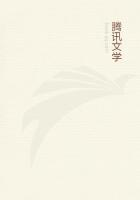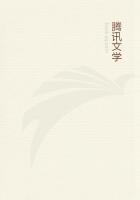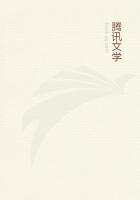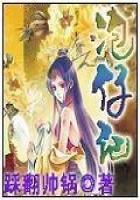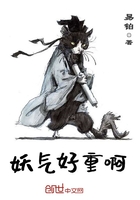But though there was so little of her, the balance was made up for by the fact that there was so much of her husband. His large, rather flamboyant person, his big white face and curling brown beard, his loud voice and his falsetto laugh, his absolutely certain opinions, above all the fervency of his consciousness of being Lord Ashbridge and all which that implied, completely filled any place he happened to be in, so that a room empty except for him gave the impression of being almost uncomfortably crowded. This keen consciousness of his identity was naturally sufficient to make him very good humoured, since he was himself a fine example of the type that he admired most. Probably only two persons in the world had the power of causing him annoyance, but both of these, by an irony of fate that it seemed scarcely possible to consider accidental, were closely connected with him, for one was his sister, the other his only son.
The grounds of their potentiality in this respect can be easily stated. Barbara Comber, his sister (and so "one of us"), had married an extremely wealthy American, who, in Lord Ashbridge's view, could not be considered one of anybody at all; in other words, his imagination failed to picture a whole class of people who resembled Anthony Jerome. He had hoped when his sister announced her intention of taking this deplorable step that his future brother-in-law would at any rate prove to be a snob--he had a vague notion that all Americans were snobs--and that thus Mr.
Jerome would have the saving grace to admire and toady him. But Mr. Jerome showed no signs of doing anything of the sort; he treated him with an austere and distant politeness that Lord Ashbridge could not construe as being founded on admiration and a sense of his own inferiority, for it was so clearly founded on dislike. That, however, did not annoy Lord Ashbridge, for it was easy to suppose that poor Mr. Jerome knew no better. But Barbara annoyed him, for not only had she shown herself a renegade in marrying a man who was not "one of us," but with all the advantages she had enjoyed since birth of knowing what "we" were, she gloried in her new relations, saying, without any proper reticence about the matter, that they were Real People, whose character and wits vastly transcended anything that Combers had to show.
Michael was an even more vexatious case, and in moments of depression his father thought that he would really turn in his grave at the dismal idea of Michael having stepped into his honourable shoes. Physically he was utterly unlike a Comber, and his mind, his general attitude towards life seemed to have diverged even farther from that healthy and unreflective pattern. Only this morning his father had received a letter from him that summed Michael up, that fulfilled all the doubts and fears that had hung about him; for after three years in the Guards he had, without consultation with anybody, resigned his commission on the inexplicable grounds that he wanted to do something with his life.
To begin with that was rankly heretical; if you were a Comber there was no need to do anything with your life; life did everything for you. . . . And what this un-Comberish young man wanted to do with his life was to be a musician. That musicians, artists, actors, had a right to exist Lord Ashbridge did not question. They were no doubt (or might be) very excellent people in their way, and as a matter of fact he often recognised their existence by going to the opera, to the private view of the Academy, or to the play, and he took a very considerable pride of proprietorship in his own admirable collection of family portraits. But then those were pictures of Combers; Reynolds and Romney and the rest of them had enjoyed the privilege of perpetuating on their canvases these big, fine men and charming women. But that a Comber--and that one positively the next Lord Ashbridge--should intend to devote his energies to an artistic calling, and allude to that scheme as doing something with his life, was a thing as unthinkable as if the butler had developed a fixed idea that he was "one of us."The blow was a recent one; Michael's letter had only reached his father this morning, and at the present moment Lord Ashbridge was attempting over a cup of tea on the long south terrace overlooking the estuary to convey--not very successfully--to his wife something of his feelings on the subject. She, according to her custom, was drinking a little hot water herself, and providing her Chinese pug with a mixture of cream and crumbled rusks. Though the dog was of undoubtedly high lineage, Lord Ashbridge rather detested her.
"A musical career!" he exclaimed, referring to Michael's letter.
"What sort of a career for a Comber is a musical career? I shall tell Michael pretty roundly when he arrives this evening what Ithink of it all. We shall have Francis next saying that he wants to resign, too, and become a dentist."Lady Ashbridge considered this for a moment in her stunned mind.
"Dear me, Robert, I hope not," she said. "I do not think it the least likely that Francis would do anything of the kind. Look, Petsy is better; she has drunk her cream and rusks quite up. Ithink it was only the heat."
He gave a little good-humoured giggle of falsetto laughter.
"I wish, Marion," he said, "that you could manage to take your mind off your dog for a moment and attend to me. And I must really ask you not to give your Petsy any more cream, or she will certainly be sick."Lady Ashbridge gave a little sigh.
"All gone, Petsy," she said.
"I am glad it has all gone," said he, "and we will hope it won't return. But about Michael now!"Lady Ashbridge pulled herself together.
"Yes, poor Michael!" she said. "He is coming to-night, is he not?

